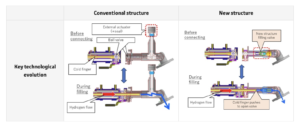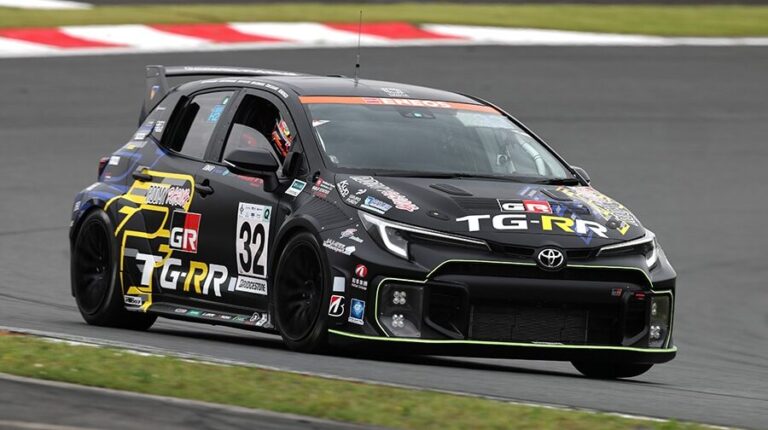Toyota Motor Corporation has announced its entry into the Eneos Super Taikyu Series 2025. The team will participate in Round 3 – the NAPAC Fuji 24 Hours Race, from May 30 to June 1 – and will field two vehicles: the #28 TGRR GR86 Future FR concept powered by low-carbon E20 gasoline, and the #32 TGRR GR Corolla H2 concept fueled by liquid hydrogen.
History of hydrogen: 2023
In 2023, the liquid hydrogen-powered GR Corolla became one of the world’s first vehicles to use liquid hydrogen in a direct-injection engine. During the first half of the engine’s development, Toyota focused on improving the durability of liquid hydrogen pumps and advancing technologies like oval-shaped tanks to increase cruising range.
In last year’s Fuji 24 Hours race, Toyota experienced issues with the electrical system, which forced repeated pit stops and prevented the car from running for a sufficient amount of time.
The goal for this year’s race is to run for the entire 24 hours with a more reliable vehicle and liquid hydrogen system, and to use the data obtained for future development, with the goal of making better motorsports-bred cars.
Using low-carbon gasoline
Liquid fuels have a high energy density and are easy to transport and store. Toyota says it will be important to accelerate the widespread adoption of carbon-neutral liquid fuels, starting with low-carbon gasoline, to achieve carbon neutrality in existing vehicles.
Low-carbon gasoline (E20) is made by blending approximately 20% bioethanol with gasoline. Bioethanol is produced by fermenting glucose and other substances found in plant resources such as corn and sugarcane. Since the plants used as raw materials absorb CO2 from the atmosphere during their growth process, bioethanol is a lower-carbon fuel than fossil fuels. Toyota says it will evaluate various types of low-carbon gasoline (E20) in the Super Taikyu Series and provide feedback from a technical perspective to build a knowledge base.
Evolution of the GR Corolla
Toyota has introduced several technical upgrades for this race, building on insights gained from last year’s event.
Starting with this race, the company will take on the challenge of using technology that automatically switches between stoichiometric combustion, which delivers high output, and lean combustion, which enables fuel-efficient driving in response to the driver’s output requirements (accelerator operation).
Toyota will also adopt a new structure for the filling valve, to improve hydrogen filling speed and safety while making the vehicle compact and lightweight. It will also incorporate a new internal piston structure to enable an increase in flow path area, improving filling speed by approximately 30%. The structure reportedly also eliminates the need for an external actuator, reducing weight by 2kg.

Finally, partial use of aluminum wiring instead of copper for the wire harnesses – bundles of wires distributed throughout the vehicle for power supply and signal transmission – will be adopted to reduce the vehicle’s weight. Corrosion caused by water exposure at terminal connections and other areas has posed a challenge in the past. By adopting a sealed-structure terminal (alpha terminal) using fiber laser welding technology developed by Furukawa Electric, Toyota says it has prevented water infiltration. This change has also resulted in an 18% weight reduction compared with conventional wire harnesses.
In related news, JCB has secured full EU type approval for its hydrogen engine for use in non-road mobile machinery, a significant milestone for the company’s hydrogen technology development program. Click here to read the full story


